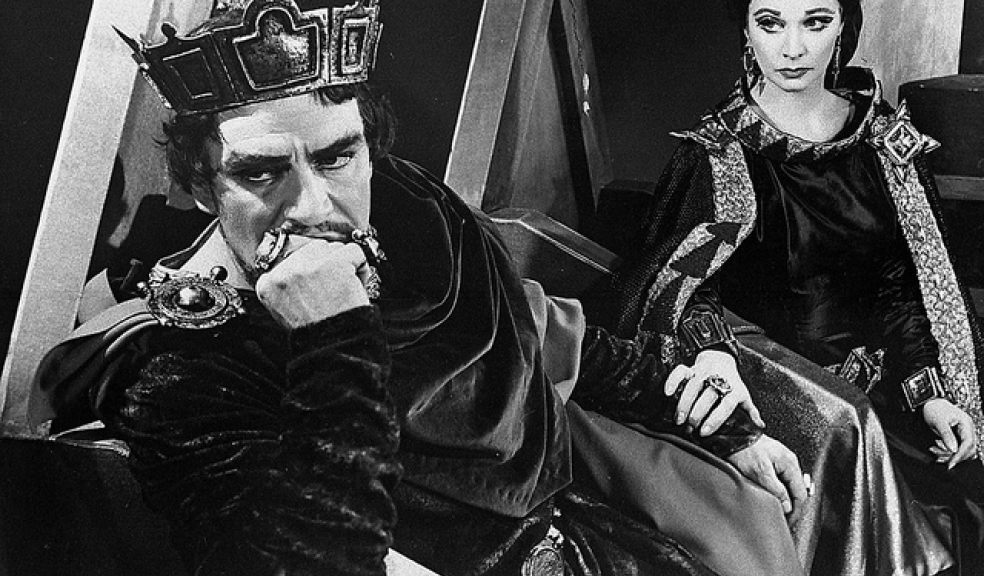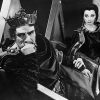
Olivier screenplay mystery solved by Exeter academic
Screenplays of Laurence Olivier’s unmade film version of Macbeth, widely thought to have been lost, have been uncovered by a University of Exeter academic. English Lecturer Dr Jennifer Barnes located 13 previously unstudied versions of the 1950s screenplay in the Laurence Olivier Archive at the British Library.
Macbeth was to be Olivier’s fourth and last cinematic Shakespeare adaptation. However the proposed film proved to be an “impossible monster”, a phrase used by Olivier to describe his struggle with grasping the role and equally applicable to the failed negotiations surrounding the film.
The film was officially shelved in 1958, despite being in the final stages of production. Responding to a request to see the screenplay in 1964, Olivier claimed that “The only version of the Macbeth film script that can be found is not any better than a sketch”. Yet Olivier’s response appears at odds with the stage the project had reached.
Since its failure, academics and cultural commentators have speculated about what Olivier’s Macbeth might have been like and how it might have fitted into his wider body of work.
Dr Barnes said: “I uncovered the Macbeth manuscripts whilst researching production materials relating to Olivier’s 1955 film of Richard III. I was incredibly excited to find a range of documents that trace the production’s development from an early draft through to detailed shooting scripts.”
In terms of Olivier’s 1964 claim, Dr Barnes added “the final shooting script certainly does not correspond to Olivier’s reference to the project as a mere “sketch”. Rather, it offers intricate timings, set plans, set designs and technical notes alongside a finalised script.
"A reading of all of the catalogued manuscripts confirms that Olivier’s cuts to the play text (unlike those of Hamlet) are minimal. It also reveals that the running time for Macbeth would, like that of Henry V, Hamlet, and Richard III, reach approximately 155 minutes.
"I can only conclude that Olivier did not want the screenplays to be seen following the failure of the film to make it to the screen. But these documents are worthy of study in their own right, attesting to Olivier’s cultural significance as a Shakespearean icon in the twentieth and twenty-first centuries.”
Prior to this discovery, the only remnant of the screenplay that has so far been available publically consists of nine lines from its conclusion. This was reproduced by Anthony Holden in his 1988 biography of Olivier (Olivier: A Biography). Holden had seen a version of the screenplay belonging to an actor who was to play Macduff, a version that had apparently been overlooked when Olivier recalled five other distributed copies in 1958.
The proposed film is heavily based on the 1955 Shakespeare Memorial Theatre production of Macbeth in which Olivier played the lead role opposite his then wife, Vivien Leigh. Olivier and Leigh would have reprised these roles for the film and Macbeth would therefore have been the first cinematic Shakespeare project to star Olivier and Leigh together.
Speculations about Olivier’s Macbeth re-circulated when actor/director Kenneth Branagh’s proposed film adaptation of the play also failed to materialise following disappointing box office returns for his other Shakespearian production, Love’s Labour’s Lost (2000).This coincidence strengthens comparisons between Branagh and Olivier and continues to shroud these unmade cinematic Macbeths in a cloak of theatrical superstition.
Having recently played Olivier in Simon Curtis’s 2011 film, My Week with Marilyn, Branagh will perform as Macbeth at the Manchester International Festival this year. Dr Jennifer Barnes’s findings are detailed in the article,‘“Posterity is Dispossessed”: Laurence Olivier’s Macbeth manuscripts in 1958 and 2012.’ Shakespeare Bulletin. 30:3 (2012): 263-297.

















